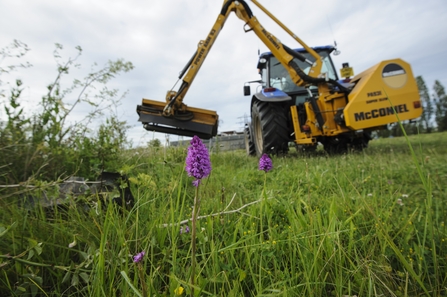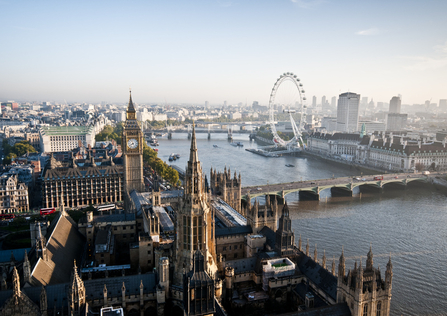Five and a half years ago, I walked for two miles across London an uncharacteristically warm autumn afternoon. I wasn’t alone – there were around 55,000 of us. We came from schools, churches, mosques, community groups, international aid organisations. We smiled, we talked, we cheered and made a bit of noise, we carried banners, some of us came in costume. And then we gathered in a huge crowd in Parliament Square. This was the run up to the Paris Climate Change Conference 2015, and all around the World similar marches were taking place. Some were tens of thousands strong, others somewhat smaller – one group of 100 or so, led by a 12 year old, braved horizontal rain and winds to carry their model polar bear across Dartmoor. We all had one thing in common - we came with a message, and we wanted it to be heard.
Since then, we’ve seen protests in all shapes and sizes. Most have been good humoured and done little to impact on the day to day activities of the bystanders other than providing an impressive spectacle. Others have been rather more disruptive, such as the Extinction Rebellion protests that stopped traffic in parts of central London in 2019. A few have been hijacked by those with a different agenda and become violent, as we saw in Bristol at the weekend. But the great majority haven’t, and even in the case of those that have, very few of the participants have been responsible for the problems.
Before looking at the pros and cons of protests and marches, it’s worth reflecting on why people participate and what they’ve achieved. Marching is a great way to experience solidarity with people who feel strongly about the same thing as you. Back in 2015, and at subsequent climate change marches in Exeter, I felt a sense of comradery that is hard to describe with people who I had never seen before and may never meet again. The groups of children with their colourful placards, the songs and chants, the drums, the inspiring speakers, the warmth of the crowd. We were bonded by our shared sense of shared purpose and the feeling that we’d made the effort to stand up and be counted in public. After this year of isolation, it’s a reminder of how important this kind of group belonging can be. Sharing experiences on social media or signing petitions just doesn’t compare.



